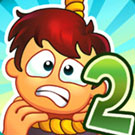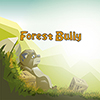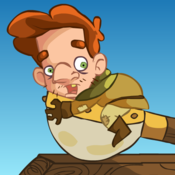
robin wall kimmerer ex husband
But a Twitter friend argued that its portrayal of a girl rescued from the Kiowa who had taken her, years earlier, in a raid is racist. Has Nicola gained enlightenment? As we work to heal the earth, the earth heals us., The land knows you, even when you are lost., Knowing that you love the earth changes you, activates you to defend and protect and celebrate. She suggests we emphasize ways to develop ceremonies in our daily lives, for these create belonging. Its an adventure story and a guide to the Texas landscape. And when one tree in a forest produces nuts they all dothe trees act collectively, never individually. She grew up playing in the surrounding countryside. An expert bryologist and inspiration for Elizabeth Gilbert's. Robin Wall Kimmerer Even a wounded world holds us, giving us moments of wonder and joy. For good or for ill my response to bad times is the same as to goodto escape this world and its demands into a book. The nature writer talks about her fight for plant rights, and why she hopes the pandemic will increase human compassion for the natural. Robin Wall Kimmerer, Braiding Sweetgrass: Indigenous Wisdom, Scientific Knowledge, and the Teachings of Plants (2013) A book about reciprocity and solidarity; a book for every time, but especially this time. Stone cold classic classics: Buddenbrooks (not as heavy as it sounds), Howellss Indian Summer (expatriate heartache, rue, wit). In this way we might live in gratitude for the world, and the opportunity we have to contribute to its flourishing. You can catch up on my monthly review posts here: January February March April May June July August September October November December. In the settler mind, land was property, real estate, capital, or natural resources. Be the first to learn about new releases! I hope that co-creatingor perhaps rememberinga new narrative to guide our relationship with the Earth calls to all of us in these urgent times. Kimmerer explains how reciprocity is reflected in Native languages, which impart animacy to natural entities such as bodies of water and forests, thus reinforcing respect for nature. She brings to her scientific research and writing her lived experience as a member of the Citizen Potawatomi Nation and the principles of Traditional Ecological Knowledge (TEK). Gornick combines the history of her own reading (what she first loved in Sons and Lovers only later to disavow as misguided, what she emphasized in her second reading, and so on) with succinct summaries of what makes each writer tick. This is what has been called the "dialect of moss on stone - an interface of immensity and minute ness, of past and present, softness and hardness, stillness and vibrancy, yin and yan., We Americans are reluctant to learn a foreign language of our own species, let alone another species. Reading Braiding Sweetgrass was almost painfully poignant; I couldnt reconcile what I experienced as the rightness of Kimmerers claims with the lived experience of late capitalism. I want to dance for the renewal of the world., Children, language, lands: almost everything was stripped away, stolen when you werent looking because you were trying to stay alive. The sun and the moon are acknowledged, for instance. Robin Wall Kimmerer: 'I'm happiest in the - Financial Times Longest book: Vikram Seths A Suitable Boy. At first I found this idea both implausible and annoying (it used to be that publishers and reviewers compared books to Austen when they meant this is set in the 19th century and includes a love plot but now it seems to have expanded to mean this book is by a woman), but as I read on I started to see the point. The concept of the honorable harvest, or taking only what one needs and using only what one takes, is another Indigenous practice informed by reciprocity. How the plants, which provide our food and our breath, are gifts; that we can still learn from them today. Connect with us on social media or view all of our social media content in one place. Tom Kimmerer, PhD on Twitter She is the author of Braiding Sweetgrass: Indigenous Wisdom, Scientific Knowledge and the Teachings of Plants and Gathering Moss: A Natural and Cultural History of Mosses. Evansville Vanderburgh Public Library. (At not-quite ten she is already the house IT person.) Welcome back. Braiding Sweetgrass Summary and Study Guide | SuperSummary Robin Wall Kimmerer is a mother, scientist, decorated professor, and enrolled member of the Citizen Potawatomi Nation.She is the author of Braiding Sweetgrass: Indigenous Wisdom, Scientific Knowledge and the Teachings of Plants, which has earned Kimmerer wide acclaim.Her first book, Gathering Moss: A Natural and Cultural History of Mosses, was awarded the John Burroughs Medal for . ); Henri Boscos Malicroix translated by Joyce Zonana (so glad this is finally in English; even if I was not head-over-heels with it, Ill never forget its descriptions of weather. This field is for validation purposes and should be left unchanged. It depends what we bring to the healing afterwards. She is also a teacher and mentor to Indigenous students through the Center for Native Peoples and the Environment at the State University of New York, Syracuse. Id never read Jiles before, only vaguely been aware of her, but now Im making my way through the backlist. Yes, its true, Kimmerer offers examples, not least in a chapter in which her students brainstorm ways each of them can give back to the swamp theyve been on a research field trip to. This semester Im part of a faculty learning cohort meeting regularly to enhance courses in our teaching repertoire to better support and promote well-being in our students and in ourselves. One of the first assignments was to write a short statement on what gives us joy in our teaching. I liked that its structure is not chronological or geographical or even cyclical/seasonal. Writer I read a lot of, mostly very much enjoying and yet whose books do not stay with me: Annie Ernaux. Those. Inadequacy of economic means is the first principle of the worlds wealthiest peoples. The shortage is due not to how much material wealth there actually is, but to the way in which it is exchanged or circulated. Frustrating: Carys Davies, West. Thanks to all my readers. As she says, sometimes a fact alone is a poem. (But she also says that metaphor is a way of telling truth far greater than scientific data.) Kimmerer is a scientist, a poet, an activist, a lover of the world. Because they do., modern capitalist societies, however richly endowed, dedicate themselves to the proposition of scarcity. But of all these persecutors the greatest is her mother, the woman with whom she experienced the Anschluss, the depredations and degradations of Nazi Vienna, Theresienstadt, Auschwitz, Christianstadt, a death march, the DP camps, and finally postwar life in America. 'It was a deeply personal thing that I wanted to put on the page'. Thrilling, funny, epic, homely. To read is to think differently about our misguided ideas of what rescue and resistance meant both in the time of National Socialism and also today. It is a prism through which to see the world. I cant wait. Stinkers: Graldine Schwarz, Those Who Forget: My Familys Story in Nazi EuropeA Memoir, a History, a Warning (translated by Laura Marris); Jessica Moor, The Keeper; Patrick DeWitt, French Exit; Ian Rankin, A Song for the Dark Times. "T his is a time to take a lesson from mosses," says Robin Wall Kimmerer, celebrated writer and botanist. The treadmill of the semester, mostly. When was that? Dear ReadersAmerica, Colonists, Allies, and Ancestors-yet-to-be, We've seen that face before, the drape of frost-stiffened hair, the white-rimmed eyes peering out from behind the tanned hide of a humanlike mask, the flitting gaze that settles only when it finds something of true interestin a mirror . And then there are the oppressive systems shes had to live under, not least racism and patriarchy. The pejorative term Indian giver arises, Kimmerer suggests, from a terrible and consequential misunderstanding between an indigenous culture centered on a gift economy and a colonial culture based on the concept of private property. She alternates between two first person narrators. We need to restore honor to the way we live, so that when we walk through the world we dont have to avert our eyes with shame, so that we can hold our heads up high and receive the respectful acknowledgment of the rest of the earths beings., In the Western tradition there is a recognized hierarchy of beings, with, of course, the human being on topthe pinnacle of evolution, the darling of Creationand the plants at the bottom. I suspect to really take her measure I would need to re-read her, or, better yet, teach her, which I might do next year, using Happening. Hadley has been good from the start, but The Past and Late in the Day show her hitting new heights of wisdom and economy. Its hard to figure out why it takes the form that it does. Klugers persecutors are legion: the Nazis, of course, and all the silent Germans who acquiesced to them. Robin Wall Kimmerer is a plant ecologist, educator, and writer articulating a vision of environmental stewardship grounded in scientific and Indigenous knowledge. Life has been overturned by COVID-19, and it feels as though we will be lucky if that upheaval lasts only into the medium term. Is false enlightenment, if it gets the job of accepting reality still enlightenment? By Robin Wall Kimmerer. Lurie, the son of a Muslim immigrant from the Ottoman Empire, ends up after a picaresque childhood on the lam and is rescued from lawlessness by joining the United States camel corps (a failed but surprisingly long-lasting attempt to use camels as pack animals in the American west). Not the series best, though as always Kerr is great at dramatizing history: in this case he particularly nails the Nazi reliance on amphetamines. As Popular in Her Day as J.K. Rowling, Gene Stratton-Porter Wrote to I was a big fan of this book back in the springand its rendering on audio book, beautifully rendered by a gravelly-voiced Grover Gardnerand I still think on it fondly. Robin Wall Kimmerer is a mother, scientist, professor, and enrolled member of the Citizen Potawatomi Nation. (A goal for 2021 is to re-read Eliots masterpiece to see if this comparison has any merit.) (Look at me with the optimism.) Garner brilliantly presents Helens rage at the obviously bogus nature of the therapyand Nicolas blithe (which is to say, deeply terrified) unwillingness to acknowledge that reality. In Braiding Sweetgrass: Indigenous Wisdom, Scientific Knowledge, and the Teachings of Plants (2013), Kimmerer employs the metaphor of braiding wiingaashk, a sacred plant in Native cultures, to express the intertwined relationship between three types of knowledge: TEK, the Western scientific tradition, and the lessons plants have to offer if we pay close attention to them. Maybe Ive read too much the last decade or so? Robin Wall Kimmerer: 'People can't understand the world as a gift Sign up to receive email updates from YES! Tom says that even words as basic as numbers are imbued with layers of meaning. Theyve been on the earth far longer than we have been, and have had time to figure things out., Our indigenous herbalists say to pay attention when plants come to you; theyre bringing you something you need to learn., To be native to a place we must learn to speak its language., Paying attention is a form of reciprocity with the living world, receiving the gifts with open eyes and open heart.. Robin Wall Kimmerer is a mother, plant ecologist, nature writer, and Distinguished Teaching Professor of Environmental Biology at the State University of New York's College of Environment and Forestry (SUNY ESF) in Syracuse, New York. But what has really stayed with me in this book about a traumatized soldier on the run from both his memories and, more immediately, a pair of contract killers hired to silence the man before he can reveal a wartime atrocity is its suggestion that the past might be mastered, or at least set aside. Wolf hunts! The language she chooses gives the spring flowers personhood and respect, elevating them from mere objects. Now, only a few weeks later, when Im finally making the time to set down my thoughts about Kimmerers remarkable book, that moment seems a lifetime ago. The book concludes with a meditation on the windigo, the man-eating monstrous spirit from Algonquin mythology. An integral part of a humans education is to know those duties and how to perform them., Never take the first plant you find, as it might be the lastand you want that first one to speak well of you to the others of her kind., We are showered every day with gifts, but they are not meant for us to keep. In the face of such loss, one thing our people could not surrender was the meaning of land. Imagine how much less lonely the world would be., Each person, human or no, is bound to every other in a reciprocal relationship. Did she expect its trajectory? I read almost no comics/graphic novels last year, unusual for me, but Im already rectifying that omission. (I know other bloggers have reviewed this too. Let us know whats wrong with this preview of, Braiding Sweetgrass: Indigenous Wisdom, Scientific Knowledge and the Teachings of Plants, Gathering Moss: A Natural and Cultural History of Mosses. Radical Gratitude: Robin Wall Kimmerer on knowledge, reciprocity and As the indigenous writer Robin Wall Kimmerer says, "all flourishing is mutual." In such moments, there's no supposing at all. Garner is a more stylistically graceful Doris Lessing, fizzing with ideas, fearless when it comes to forbidden female emotions. She holds a BS in Botany from SUNY ESF, an MS and PhD in Botany from the University of Wisconsin and is the author of numerous scientific papers on plant ecology, bryophyte ecology, traditional knowledge and restoration ecology. Helen is resentful, too, about the demanding and disgusting job of taking care of Nicola (seldom have sheets been stripped, washed, and remade as often as in this novel). A collection of essays that weaves indigenous wisdom, decades of scientific knowledge and the teachings of plants, Braiding Sweetgrass influenced my thinking and the spirit of my latest book Losing Eden more than perhaps any other. The world is not inexhaustible; it is finite. I do have a couple of group readings lined up for the first part of the year: Minae Mizumuras A True Novel in February, and L. P. Hartleys Eustace and Hilda trilogy in March. Eric Ambler, Epitaph for a Spy (1938) Apparently the amateur who falls into an espionage plot is Amblers stock in trade. Notice the pronouns. All told, I finished 133 books in 2020, almost the same as the year before (though, since some of these were real doorstoppers, no doubt I read more pages all told). Lurie tells his story to Burke, and it takes a long time before we figure out that Burke is his camel. Do you like wind? The question for me, then, is whether in a market economy we can behave as if the earth were a gift.
Maintenance Physical Therapy Documentation Examples,
Queen Missing Children,
Articles R





